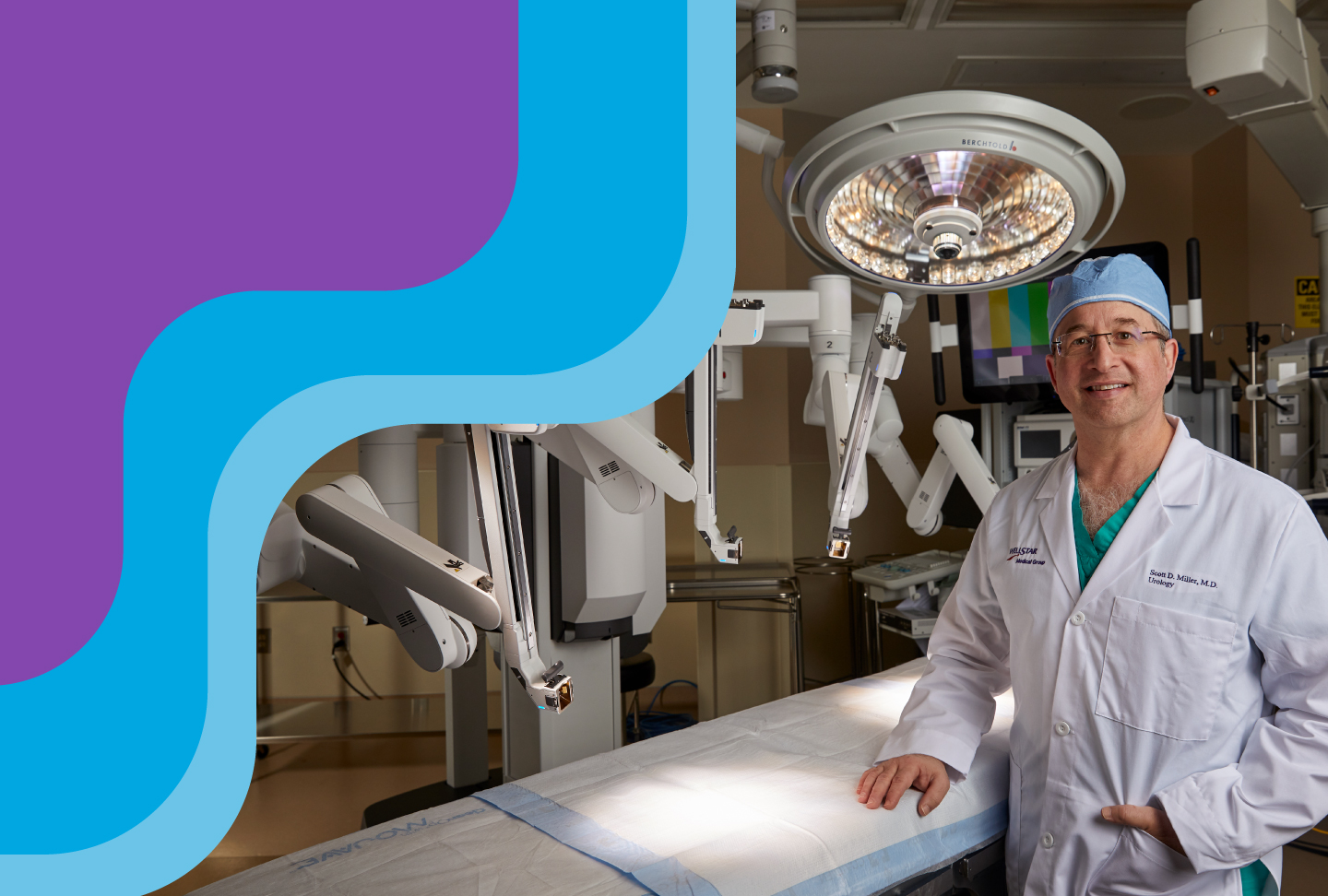Robotic Surgeries Get Patients Back to Their Lives Sooner
No one wants surgery. But when it’s necessary, it makes sense to choose the least invasive, most highly advanced type, if possible. And for a wide variety of surgeries, it is possible. At Wellstar North Fulton Hospital, a team of highly skilled robotic surgeons is using the most advanced technology available to help patients get back to their lives sooner than ever.
“Our team of robotic physicians has collectively performed more than 6,000 surgeries,” said Scott Miller, MD, North Fulton Hospital’s medical director of robotic surgery. “And our specially trained anesthesia team has also provided care to thousands of patients. At North Fulton, we offer the highest level of robotic surgery expertise.”
Robotic surgery specialties at North Fulton Hospital include colorectal, general, gynecologic (oncologic and benign), thoracic, trauma and urologic. And the surgeries are performed by clinical leaders. Dr. Miller, a urologist, was the first surgeon in Georgia to robotically remove a prostate. Named to Atlanta Magazine’s list of Top Doctors for 10 consecutive years, he has also been recognized for the past decade as a “National Top Doctor” by established research firm Castle Connolly Medical Ltd. The list aims to identify the top one percent of specialists and sub-specialists in the US.
Dr. Miller explains that with robot-assisted surgery, the surgical system is operated by a physician sitting a few feet away from the patient. Using a high-powered camera, the surgeon guides the arms of the robot that holds surgical tools, which are inserted into the patient through small incisions. With robotic surgery, the surgeon’s movements are more precise, according to Dr. Miller.
“Robotics allow greater range of motion, and thanks to the magnified, three-dimensional image of the surgical field, we can see the patient’s anatomy in better detail,” he said. “It’s the difference between looking through a window and actually walking into a room.“
With the smaller incisions we make during robotic surgery, there’s less blood loss, less post-operative pain, less scarring, quicker recovery and a lower risk of complications,” adds Dr. Miller, who emphasizes another benefit unique to Wellstar North Fulton Hospital: personal, compassionate care.
“The surgeon you first meet with will be the physician who performs your surgery, and sees you postoperatively. We each personally care for our patients, from start to finish.”
Wellstar North Fulton Hospital's Robotic Surgeons
Gregory Coffman, MD General, Trauma and Colorectal
Shelley Dunson-Allen, MD Obstetrics & Gynecology
Caroline Gibbons, MD Gynecology
Scott Miller, MD Urology
Theolyn Price, MD Thoracic


